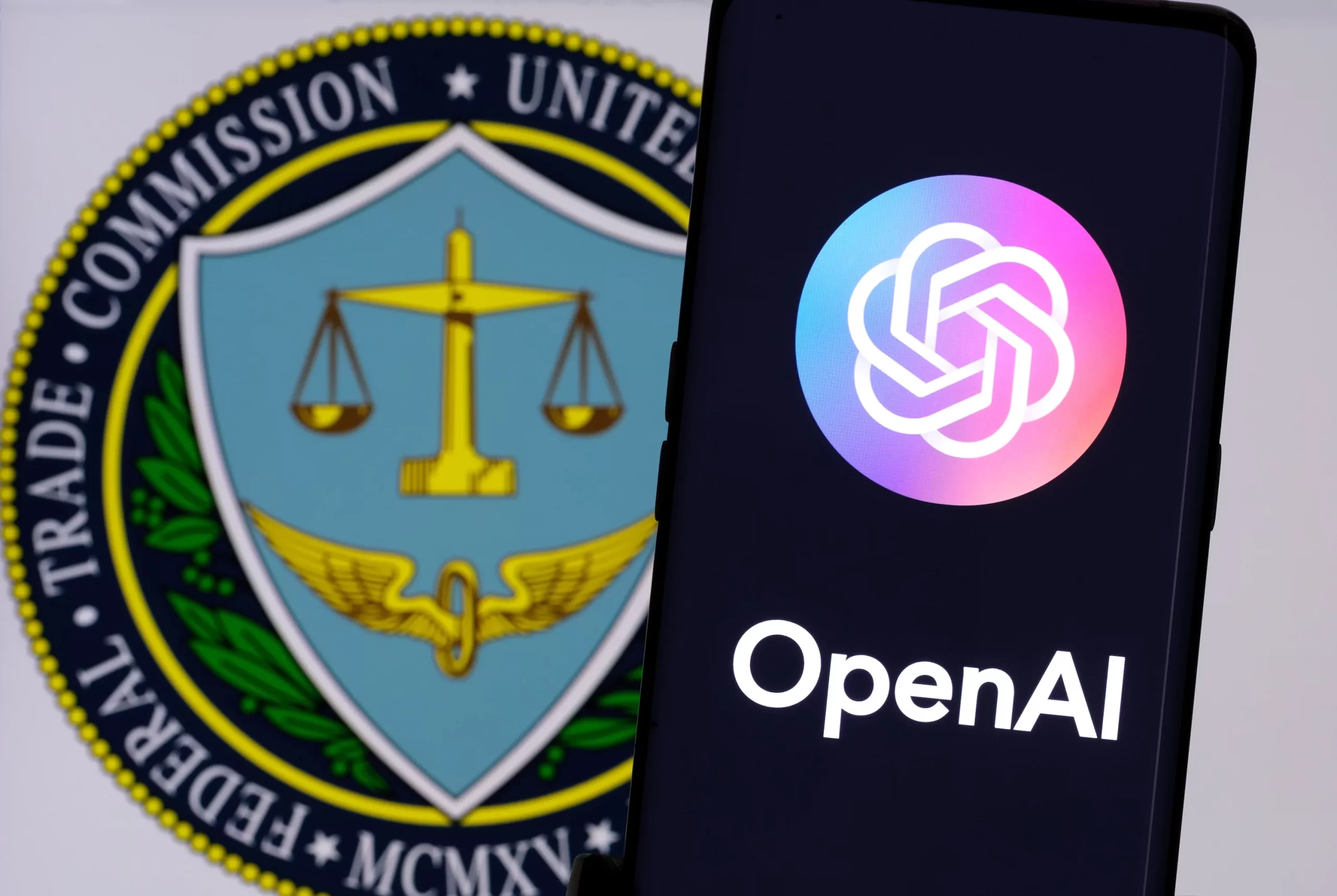OpenAI Faces FTC Investigation: Exploring The Future Of AI Accountability

Table of Contents
The FTC Investigation: What We Know So Far
The FTC's investigation into OpenAI is shrouded in some secrecy, but certain details have emerged. The investigation reportedly centers around concerns about the potential for OpenAI's technologies, particularly large language models like GPT, to cause harm through misleading marketing practices and potential violations of data privacy regulations. The specific allegations haven't been fully disclosed, but the investigation's initiation itself signals a growing unease within regulatory bodies about the unchecked power of advanced AI.
-
Specific Concerns: The FTC's concerns likely include the potential for AI-generated content to spread misinformation, the use of personal data in training AI models without sufficient user consent, and the lack of transparency around the algorithms and data sets used in these powerful systems. These concerns extend to the potential for bias and discrimination embedded within these models, leading to unfair or discriminatory outcomes.
-
Timeline and Potential Outcomes: The investigation is ongoing, with no set timeline for completion. Potential outcomes range from settlements requiring changes to OpenAI's practices, to substantial fines, or even more far-reaching regulatory actions.
-
OpenAI's Response: OpenAI has acknowledged the FTC investigation and stated its commitment to responsible AI development. However, the specifics of their response and their cooperation with the investigation remain largely undisclosed.
The Growing Need for AI Accountability
The OpenAI investigation isn't an isolated incident; it reflects a broader realization of the immense power and potential for misuse of increasingly sophisticated AI systems. The ability of AI to generate realistic text, images, and even code raises serious concerns about its potential impact across various sectors.
-
Potential Harms: AI systems can perpetuate and amplify existing societal biases, leading to discrimination in areas like loan applications, hiring processes, and even criminal justice. The spread of misinformation through AI-generated content poses a significant threat to democratic processes and public trust. The potential for AI to be used for malicious purposes, such as creating deepfakes or automating cyberattacks, further underscores the need for stringent safeguards.
-
Challenges of Regulation: Regulating AI presents unique challenges. The rapid pace of technological advancement makes it difficult for regulators to keep up, and the complex nature of AI algorithms makes it challenging to assess their potential impact and identify biases.
-
Shared Responsibility: Addressing the challenges of AI accountability requires a collaborative effort. Developers must prioritize ethical considerations in the design and development process, users must be educated about the potential risks of AI, and governments must create effective regulatory frameworks that balance innovation with safety and fairness. This requires international cooperation, since AI applications transcend national borders.
Potential Impacts of the FTC Investigation
The FTC's investigation into OpenAI could have significant long-term consequences for the AI industry, shaping the future of AI development and influencing how AI systems are designed, deployed, and regulated.
-
Impact on OpenAI: The investigation could significantly alter OpenAI's future development trajectory, potentially leading to changes in its business model, data handling practices, and internal governance structures.
-
Influence on AI Safety and Ethics: The outcome of the investigation could serve as a precedent for future regulatory actions, influencing the development of industry-wide standards for AI safety and ethics. This could spur the development of new tools and techniques for detecting and mitigating bias in AI systems.
-
Broader Regulatory Changes: The investigation may trigger broader regulatory changes within the AI sector, leading to the implementation of stricter data privacy regulations, enhanced transparency requirements, and possibly even the creation of new regulatory bodies specifically focused on AI oversight.
-
Investor Confidence and Public Perception: The investigation's outcome could impact investor confidence and public perception of AI. Negative outcomes could hinder investment in the AI sector, and erode public trust in AI technologies.
The Future of AI Development: Balancing Innovation and Responsibility
The future of AI development hinges on a fundamental shift in mindset: prioritizing responsible innovation. This means incorporating ethical considerations into every stage of the AI lifecycle, from initial concept to deployment and ongoing monitoring.
-
Ethical Considerations in Design: Developers must proactively identify and mitigate potential biases and harms embedded within their AI systems, prioritizing fairness, transparency, and accountability.
-
Transparency and Explainability: Building trust requires transparency. Making AI systems more explainable (XAI) allows users to understand how decisions are made, enabling greater accountability and fostering trust.
-
Collaboration and Public Engagement: Effective AI governance requires collaboration between researchers, policymakers, developers, and the public. Open dialogue and public engagement are vital in shaping responsible AI policies and fostering a shared understanding of the risks and opportunities presented by AI.
Conclusion:
The FTC investigation into OpenAI underscores the critical need for increased AI accountability. The potential for harm from powerful AI systems is undeniable. The future of AI depends on striking a delicate balance between fostering innovation and ensuring its responsible use. This requires robust ethical guidelines, transparent practices, and proactive regulation. Let's work together to shape a future of AI accountability and responsible innovation, ensuring that AI benefits all of humanity. We need proactive engagement from everyone involved in the AI ecosystem to address the challenges ahead and create a more equitable and trustworthy AI-powered future.

Featured Posts
-
 Maguire On Being Stripped Of Manchester United Captaincy
May 23, 2025
Maguire On Being Stripped Of Manchester United Captaincy
May 23, 2025 -
 The Evolution Of Continuity From Karate Kid To Cobra Kai
May 23, 2025
The Evolution Of Continuity From Karate Kid To Cobra Kai
May 23, 2025 -
 Goroskopy I Predskazaniya Polniy Astrologicheskiy Prognoz
May 23, 2025
Goroskopy I Predskazaniya Polniy Astrologicheskiy Prognoz
May 23, 2025 -
 Oscar Piastris Miami Grand Prix Victory Mc Laren Triumph Over Lando Norris
May 23, 2025
Oscar Piastris Miami Grand Prix Victory Mc Laren Triumph Over Lando Norris
May 23, 2025 -
 Piastri Beats Norris Mc Laren Dominates At The Crypto Com Miami Grand Prix
May 23, 2025
Piastri Beats Norris Mc Laren Dominates At The Crypto Com Miami Grand Prix
May 23, 2025
